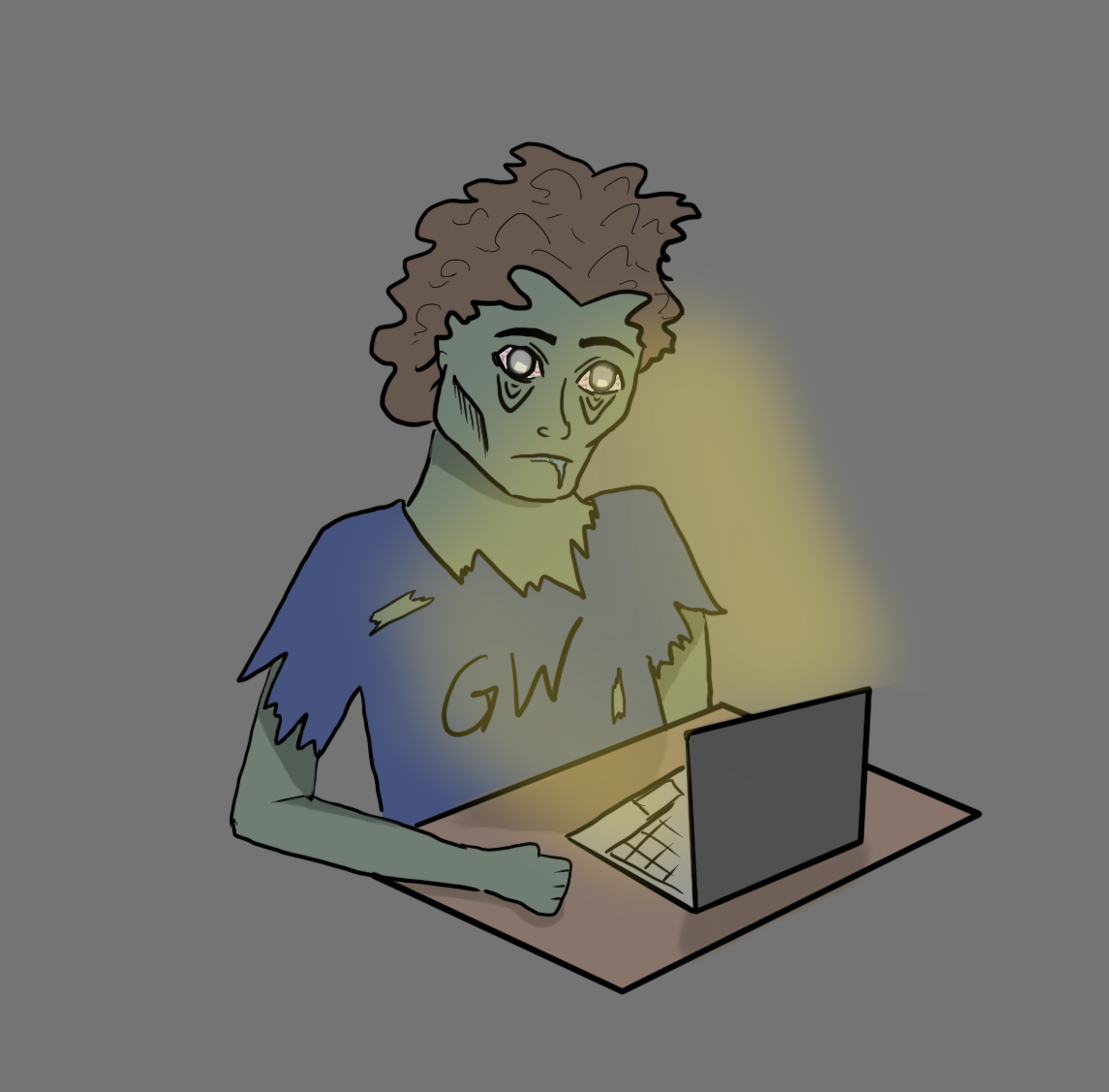If we have learned anything from the past year, it’s that Zoom University sucks.
Online education is not comparable to in-person schooling. It never will be, no matter how high-speed our WiFi is or how well a professor can conduct a class remotely. We have felt the onset of stress and sadness early on in the pandemic, and now it’s in full swing. We have more time on our hands, but we couldn’t feel less motivated to get work done.

Hannah Thacker | Opinions Editor
It has been one year since the COVID-19 pandemic sent students home. We have a lot to learn and a lot more we may wish to forget about. But if we should do anything this week, we should reflect on a year of really high highs and really low lows.
For one, we haven’t gotten a great return on investment as students. We have paid the cost of an in-person college experience for an online school. Many students pursue majors, like photography and engineering, that depend on on-campus services to complete their required degrees and get the most of out their classes. A lot of those students may have needed to purchase their own equipment because they aren’t on campus. And as a whole, we have paid a bit too much for Zoom classes. If the University can learn anything during a time of crisis like the pandemic, it’s that students need an explanation for where their money is going when the thing they paid for – college – has been taken away.
As students, in hindsight, we may have also undervalued what a campus experience means. Attending college is about more than just the degree. We cannot walk through Kogan Plaza and see students working and studying together or enjoy the frazzled camaraderie of Gelman Library at 2 a.m. during finals season. We can’t laugh with our roommates in between writing a paper or walking to the National Mall after a long day of classes. In essence, we’re in college without getting a college experience, and we should never take that experience for granted when we potentially return to campus in the near future.
To no fault of professors’ own, a Zoom education is subpar. Discussion sections and classroom participation over an online interface are just painful. Students never want to speak up in a class of strangers while sitting in the same spot they’ve been sitting in for hours in their childhood bedroom. Trying to get people to speak and contribute to class discussions is like pulling teeth and takes away a crucial part of a college education – learning how to discuss ideas, topics and situations with your peers from a variety of perspectives. Nobody signed up to do their classes online, and this includes professors. Professors are unable to replicate certain aspects of class over platforms like Zoom, causing students to either get a watered-down version of the content or for content to be cut altogether. Should we all return to campus one day, students must not take their classroom experience for granted.
Even outside of the quality of education, the pandemic has been brutal to students’ mental health and overall well-being. College-aged people are almost universally stressed past the breaking point – more so even than usual. GW in particular is a competitive school – even in normal times, this time of the semester would be hallmarked by widespread burnout, with midterms, internship applications and jobs competing for every second of students’ time. The mental health and motivational obstacles faced by students have dramatically increased in the last year, but the rat race remains the same – making it even harder for students to balance everything at once. In a sense, the pandemic has helped put into perspective exactly how much stuff students have been expected to do at the same time even during normal times.
Still, we’ve learned that there are a few silver linings to online school amid the many, many downsides. Zoom eliminates that dash across campus to class when you sleep through your alarm – and it also means you can turn your volume off when the devil’s advocate starts talking. But more importantly, virtual platforms have made classes more accessible in some respects, especially the recorded lectures component. Students with chronic illnesses or those who need accommodations – both of whom have been especially hard-hit by virtual learning’s challenges – are well-served by being able to go back and watch lectures on their own time. And people who have a hard time asserting themselves in freewheeling class discussions can speak up using the chat function. The upsides may be few and far between, but they exist. And who knows, maybe we can integrate them into the way in-person classes work once GW reopens.
On the whole, students have endured a hellish year and should give themselves credit for making it through. The virtual environment has proven to be a flimsy substitute for real-life classes. Hopefully, when we’re all back on campus together, we’ll have a renewed appreciation for the little things and big things that we missed out on this year.
The editorial board is composed of Hatchet staff members and operates separately from the newsroom. This week’s piece was written by opinions editor Hannah Thacker and contributing opinions editor Andrew Sugrue, based on discussions with managing director Kiran Hoeffner-Shah, managing editor Parth Kotak, sports editor Emily Maise, culture editor Anna Boone and design editor Olivia Columbus.

